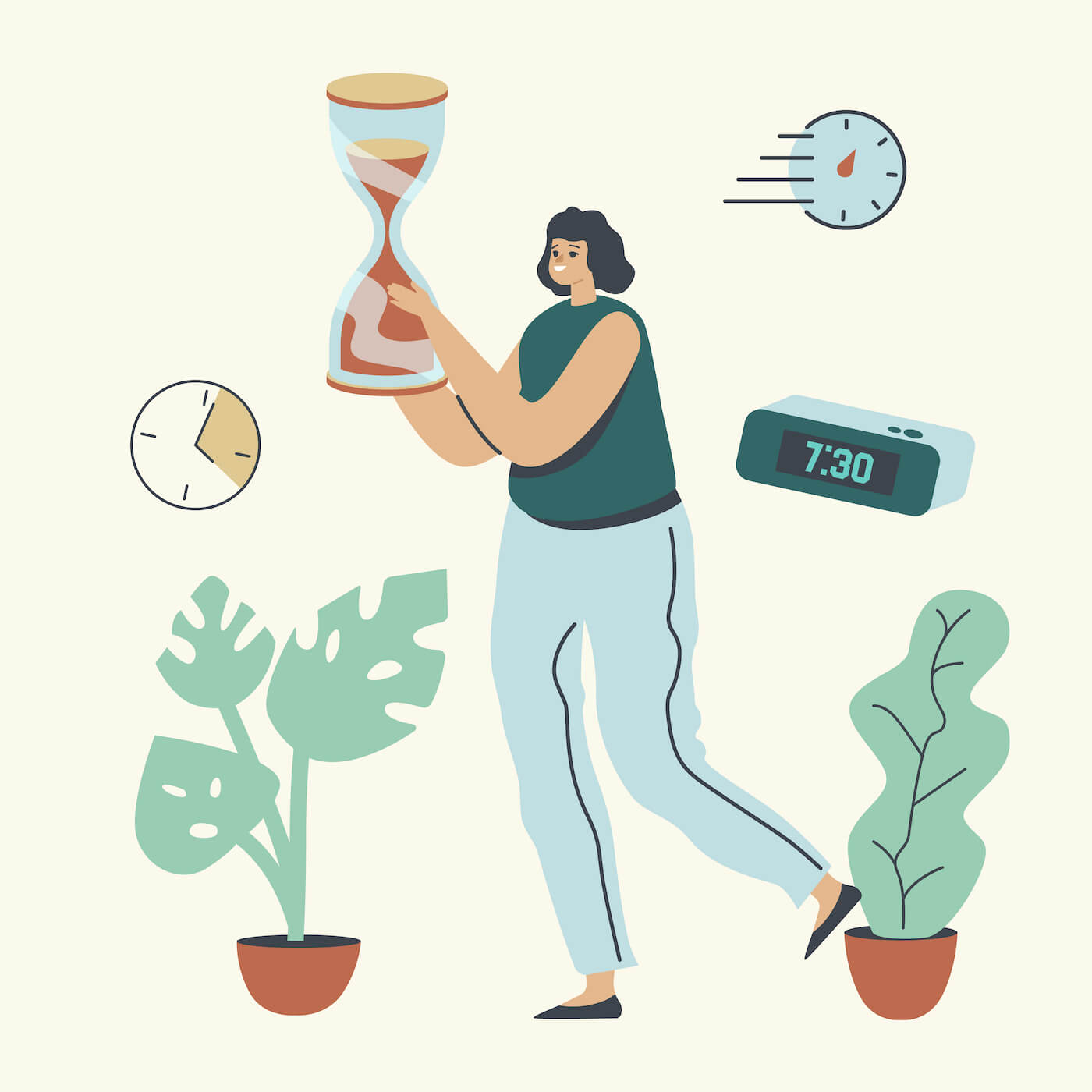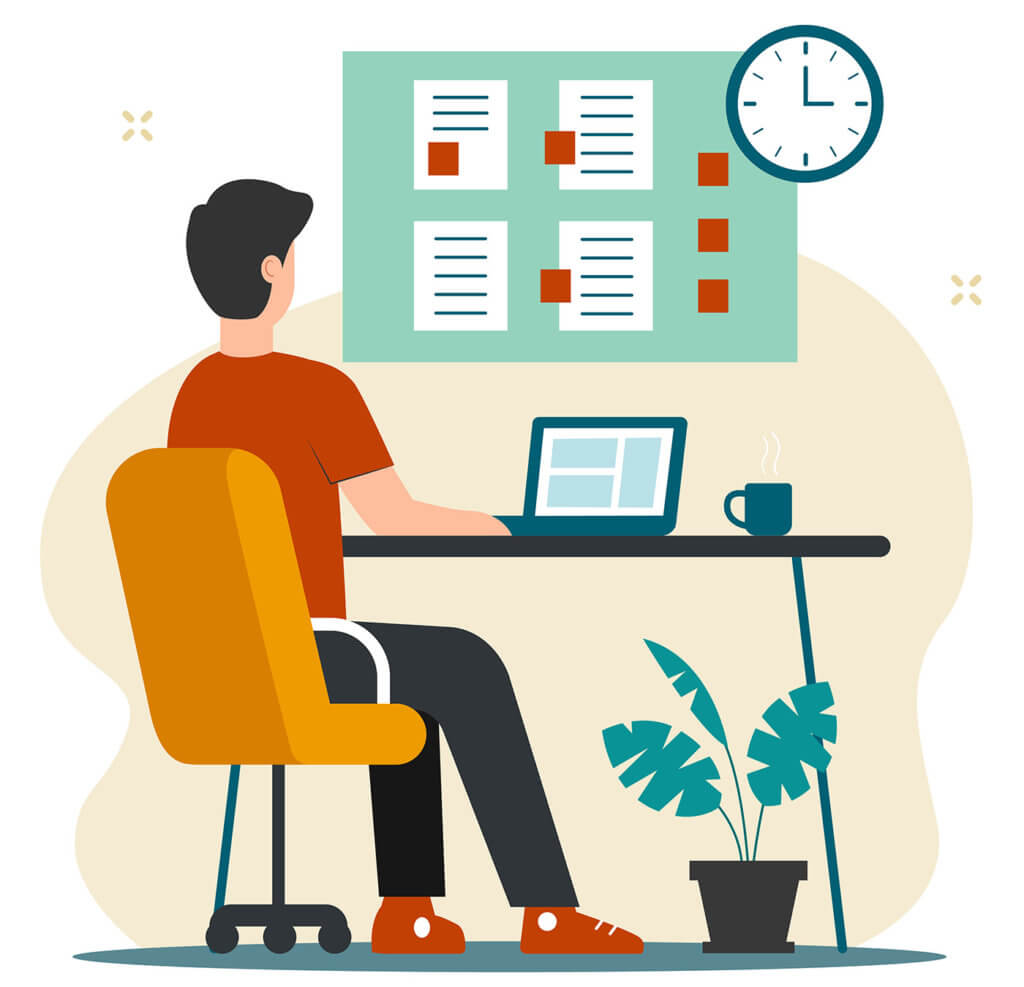How Deep Work Can Help You Achieve Your Productivity Goals
Improving productivity at work is a major priority for most businesses. There’s no one-size-fits-all approach to achieving your productivity goals, but you can consider deep work for productivity and better time management.
Maybe you’ve heard about deep work (or maybe you haven’t). Deep work is something that you should at least research and consider when it comes to improving productivity in your workforce:
What is Deep Work for Productivity?

Deep work refers to a type of cognitive depth where we are allowed to work in a distraction-free state of deep concentration or focus for an extended period of time. Deep work is arguably when our best work is performed because it is uninhibited by distractions or interruptions.
Deep work was first coined by Cal Newport, who is an associate professor of computer science at Georgetown University. What people like about deep work is that it is believed to push your cognitive capabilities to their limits, allowing you to work incredibly well, hard, and efficiently too.
This compares with shallow work, which generally includes non-intensive tasks that are low-value, easy to replicate, and don’t require a lot of cognitive engagement. These can include things like sending emails, scanning websites, using social media, or browsing through the work on your plate.
Most people think that they are engaging in work effectively when conducting shallow work but they are most likely practicing task residue (a term coined by Sophie Leroy) or essentially attention residue. This is where you switch from task to task, but your attention is still on the former task. This is why multitasking might seem hard (especially as it is not possible) and why it can be difficult to be pulled away from work. It takes a while for your brain to pull itself away from that task and focus on a new one, only to be potentially pushed back into the old task.
Not everyone can immediately engage in deep work. Some believe that you need to practice your cognitive fitness in order to get good at it. This means that you have to train yourself to focus on a cognitively demanding task without distraction and to get good performance from your work. By repeatedly practicing focused work for a long period, you can become better at deep work.
Deep work has had such an impact that some people practice depth philosophy, which is a personal approach to achieving deep work. This involves completely removing shallow work or carving out regular periods for shallow work in a daily routine. It can even last as long as weeks of deep work.
Should I Practice Deep Work for Workplace Productivity?
While the use of deep work may have been floating around as a trending term, it is actually something that you and your team can consider implementing for personal efficiency or workplace productivity. This has been found to be a useful antidote to common workday practices of oversaturation, constant distractions, and unrewarding tasks. And this makes sense.
When we’re inundated with shallow work like emails, meetings, constant connectivity, social media, and so on, we lose out on the ability to engage our focus because we’re constantly switching contexts. Not only does this not really feel the best, but we’re not able to perform at our cognitive peak!
When asking the question “should I practice deep work for workplace productivity?” the answer is yes! Deep work has a lot to do with productivity, and Newport even positioned the term as being one way of securing a competitive advantage over coworkers or competing businesses. Arguably, practicing deep work would improve productivity and give employees the chance of improving their work status, being more efficient, and be rewarded within the company.
The good news is that deep work is not just about workplace productivity; it also has a deeper aim of happiness, contentedness, and satisfaction. Especially in contrast to shallow work, deep work challenges someone to accomplish something difficult and worthwhile; whereas, shallow work can be draining, stressful and unsatisfying. And this can improve your company culture and employee satisfaction.
The fulfillment gained from the intense concentration of a high-skill task can be extended to an employee’s life in general. Therefore, by encouraging deep work, you’re also encouraging deep living while off the clock, which can allow your employees to feel more engaged and present in daily life and in the moment. This can have significant benefits to your employees, and then your company culture and employee satisfaction on top of that!
How To Perform Deep Work

Thinking about implementing a deep work mode to achieve your productivity goals? If you’re a manager, consider implementing deep work practice times and focus times as this can encourage more of your employees to practice deep work in a distracted world.
To practice deep work, try to first understand how you work best. You want to remove as many distractions as you can, also known as digital minimalism in remote work. This means removing shallow tasks by closing your email browser and putting your phone on do not disturb. You can even put an away emoji in your Slack to ensure that your coworkers know that you aren’t ignoring them.
This is a time of planning and protecting deep work time. Consider only blocking off an hour of deep attention-focused work and then try to get into a workflow of intense focus. Try to also have a specific task on hand that you want to do so that you can focus optimally. This does not need to be at a time when you complete hard things. Instead, just remove distractions and be prepared to focus. Monitor your behavior when you do this so that you better understand what is pulling you away from distraction-free concentration and then you can begin correcting that behavior.
By planning out a deep work session, you are creating a space that is free from distractions and ideally suited for deep work. There are elements of self-training and willpower training too, so you can push yourself to focus for longer periods of time, retraining your brain. By establishing that deep work is important and that it needs to be practiced, you’ll find it becomes easier and more rewarding. This will reinforce positive habits and rituals, and reinforce it as something that you like to do (rather than what you want to do).
Improving Workplace Productivity With Deep Work and Monitoring Software
The bottom line is that deep work is good! To support your business as it practices deep work and improves productivity, consider implementing an employee monitoring software! You may find that a deep work habit with employee monitoring will give you higher quality work overtime.
Employee monitoring software is a proven productivity tool that allows your employees to practice better time management, better project tracking, and obtain an objective sense of productivity in your workplace.
With monitoring software you can see:
- If your employees are really working
- What remote employees and all employees are working on
- The applications they are using
- The websites they are visiting
- If they are working or really sending messages
- Examples of time theft
- Identify project red flags
- Spot distractions during deep focus time
- Time blocking for deep work
- Deep work scheduling
Monitoring software with SoftActivity is an advanced time tracking and productivity software that can boost productivity and efficiency, and allow your company to practice deep work effectively. See the difference today with SoftActivity monitoring software.
By SoftActivity Team.